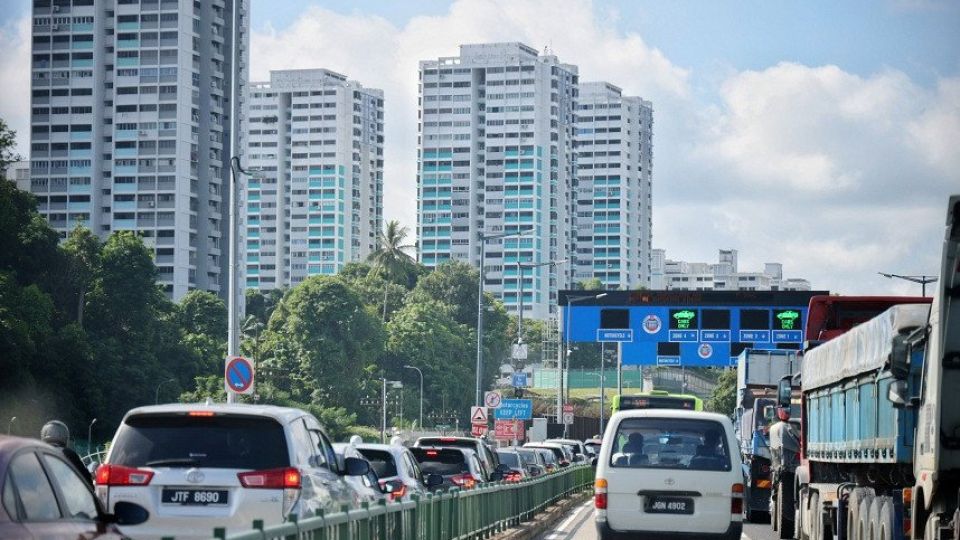October 24, 2024
JOHOR BAHRU – After Ms Nur Amira Jaaffar graduated in February with a degree in business administration, she took on her first job as an administrative clerk in Johor at a monthly pay of RM1,500 (S$455).
Dissatisfied with her salary, the 24-year-old Malaysian from Senai, Johor, decided to switch to a housekeeping job at a hotel in Singapore earlier in October. She now earns $2,000 a month, more than four times her previous salary.
According to the Mara Technological University graduate, who now rents a room in Yishun, while there are jobs in Johor that match her educational qualifications, the starting pay is just too low.
“It only makes more sense to work in Singapore,” she told The Straits Times.
She added that she was unwilling to commute across the border daily. It would be too exhausting for her, as Senai is about 26km from the checkpoint, even without taking into consideration the traffic situation.
Higher wages in Malaysia’s southernmost state have been flagged by Johor officials as a key tool for it to attract and retain talent, and tackle the brain drain into neighbouring Singapore. This issue has become more prominent as plans for the Johor-Singapore Special Economic Zone (JSSEZ) and Johor’s Special Financial Zone (SFZ) in Forest City get under way.
Johor’s state government had said it hopes that the setting up of the JSSEZ and the SFZ will help address the manpower situation.
A deal for the JSSEZ – planned to be an integrated zone for business and investment to ease the movement of people and goods across the border – is expected to be signed between Malaysia and Singapore by the end of 2024.
The JSSEZ is set to cover Iskandar Malaysia and Pengerang, an area spanning 3,505 sq km across southern Johor and more than four times the size of Singapore.
The area will host data centres, technology parks and manufacturing hubs, with global tech players like Nvidia already setting up operations there and Microsoft planning a data centre in Kulai.
Mr Natazha Harris, chief executive officer of state investment agency Invest Johor, has suggested that starting salaries for workers in the JSSEZ can be set at between RM4,000 and RM7,000.
This is not as high as Singapore’s starting wages, but working in Johor saves Malaysian workers the effort and time spent commuting across the border daily.
“I think the guy (Malaysian worker) will take it,” said Mr Natazha, who was speaking at an Invest Malaysia event on Sept 26 in Johor.
Mr Derek Tan, a business development manager for a logistics firm in Senai, is a case in point. The 32-year-old studied in primary and secondary schools in Singapore, attended college in the UK and later returned to Malaysia to work.
“Most of my friends and siblings work in Singapore, and they earn far more than me, but I chose to work in Johor so I can spend more time with my wife and daughter,” he told The Straits Times.
Still, more than 300,000 Malaysians travel across the Johor-Singapore Causeway each day, lured by the strong Singapore dollar, which triples their earnings.
As a result, Johor has reported shortages of workers in sectors such as food and beverage, hotels and healthcare. Chief Minister Onn Hafiz Ghazi said in July: “There were 74,710 job vacancies advertised, but only 51,946 applicants were recorded.”
The rising cost of living in Johor is another push factor for workers.
“Everything is so expensive now,” said 20-year-old Sharon Lee, who is a sales assistant selling premium streetwear at KSL City Mall in downtown Johor Bahru.
Ms Lee says she earns RM3,000 a month, but spends more than 80 per cent of her earnings supporting her parents and on monthly expenses such as rent, utilities and daily necessities.
Johor’s mean household income is RM8,517 a month, while average household expenditure is RM5,342, according to the statistics department as at December 2022.
Latest inflation figures in August showed the Consumer Price Index in Johor rising 1.8 per cent from the same period in 2023, below the national average of 1.9 per cent but higher than the capital city Kuala Lumpur’s 1.6 per cent.
Stulang assemblyman Andrew Chen Kah Eng told ST most families in Johor aspire to have their children gain employment in Singapore to cope with the cost of living.
Nevertheless, he is hopeful that the JSSEZ and major cross-border infrastructure like the Rapid Transit System Link project will benefit local residents.
“It will create spillover (benefits) for the people and businesses of Johor in all sectors, from services to hotels, F&B and tourism,” he said.
There are also other initiatives to boost wage levels. Datuk Onn Hafiz has said his state government is negotiating with companies operating in the JSSEZ to offer better salaries, especially those involved in fintech and artificial intelligence (AI).
A career fair that will be held from Nov 1 to 3 to mark the launch of the Johor Talent Development Council will promote job vacancies in sectors such as aviation, hotels and construction, with starting salaries of around RM3,000.
But industry players said it is too early to tell how the JSSEZ and the SFZ will impact local wages.
Mr Teh Kee Sin, who runs a manufacturing company and is a founding president of the SME Association of South Johor, said that most of Johor’s enterprises play a supporting role to multinational corporations operating out of Kuala Lumpur, making it a challenge for them to match the salaries offered in Singapore.
“With the JSSEZ and the SFZ, there will be high-skilled jobs that pay better wages, but that means workers will need to pivot to sectors such as financial services or AI to reap the benefits,” he said.

